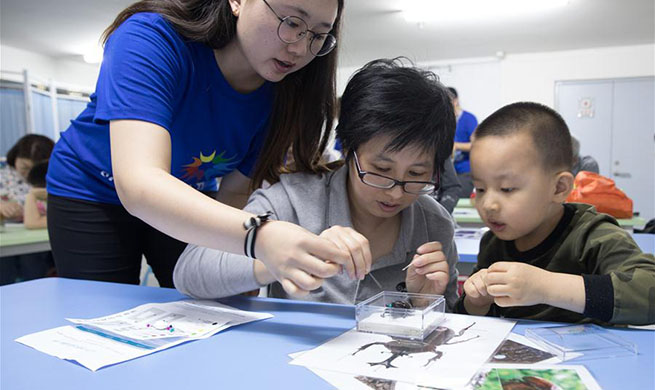XI'AN, May 21 (Xinhua) -- A collection of ancient jaw harps dating back some 4,000 years ago were unearthed in northwest China's Shaanxi Province, archaeologists announced at a press conference Monday.
More than 20 ancient jaw harps, called "kouxian" in Chinese, were discovered at the Shimao ruins, an important prehistoric site in Shenmu City. They are by far the earliest string instrument ever found in China.
Each of the instruments, made of bone, is 8 to 9 cm long and 1 cm wide. A wealth of other cultural artifacts, including pottery, bone objects, stoneware and jadeware, were also unearthed, according to Sun Zhouyong, head of the provincial archaeology institute.
Records of the ancient instruments can be found from the pre-Qin Period (pre-221 BC) in China. The modern jaw harp is the smallest Chinese traditional instrument and popular among several ethnic groups. Similar instruments have been used throughout the world.
The main area of the Shimao site covers an area of more than 4 million square meters. It consists of three parts, including an imperial town, an inner city and an outer city. It was listed among China's top 10 archaeological discoveries in 2012.
















